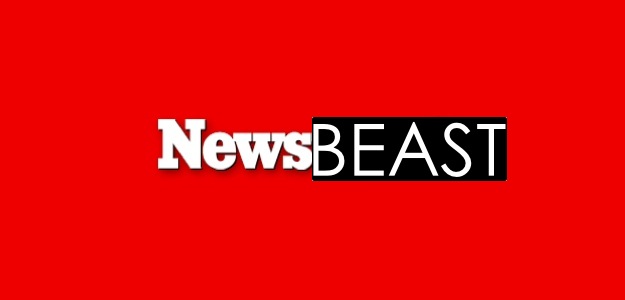 When world-famous print news magazine Newsweek folded last year – with its December 23 issue closing out a run of 80 years – long-time readers could console themselves with the knowledge that the Newsweek legacy would continue online as part of the unfortunately-titled Newsweek Daily Beast Company. That reassuring fact lasted … well, just more than a month, with the company announcing that it will be changing its name to the far shorter, only slightly more ridiculous “NewsBeast.”
When world-famous print news magazine Newsweek folded last year – with its December 23 issue closing out a run of 80 years – long-time readers could console themselves with the knowledge that the Newsweek legacy would continue online as part of the unfortunately-titled Newsweek Daily Beast Company. That reassuring fact lasted … well, just more than a month, with the company announcing that it will be changing its name to the far shorter, only slightly more ridiculous “NewsBeast.”
The announcement made by CEO Baba Shetty Friday morning was part of a town hall meeting of the company’s corporate parent, IAC. The change aims to demonstrate the closer connection between the Newsweek brand and Tina Brown’s online Daily Beast. The two companies merged in November 2010, with Brown at the time writing that the partnership meant that the then-new digital property would “now be teamed with a legendary, weekly print magazine.”
Sadly, the partnership didn’t seem to improve Newsweek’s fortunes. Already faced with falling sales and questionable relevance in an increasingly Internet-based news economy, the merger of the two companies placed Tina Brown in charge of the magazine – a move that many saw as the start of a downturn for the quality of the work contained therein. This was abundantly clear by a series of sensational and controversial covers in the magazine’s final years.
In October last year, the cancellation of the Newsweek magazine was announced, with Brown and Shetty explaining that this was in part due to a desire to transform Newsweek into a digital publication entitled Newsweek Global. “Newsweek Global,” they wrote, “will be a single, worldwide edition targeted for a highly mobile, opinion-leading audience who want to learn about world events in a sophisticated context. Newsweek Global will be supported by paid subscription and will be available through e-readers for both tablet and the Web, with select content available on The Daily Beast.”
The cancellation brought to an end a run of weekly releases that started in (as News-Week) February 1933, and at one point enjoyed an international circulation of 4 million readers, with more than 2.5 million in the United States alone. For the majority of its existence, the magazine was the property of The Washington Post, which purchased it in 1961 and sold it just three months before the merger with the Daily Beast to Sidney Harman for a mere $1.00 on the agreement that he also assume the responsibility for the magazine’s many liabilities.
The renaming of the company does not mean the end of Newsweek or The Daily Beast as individual entities. Digital magazine Newsweek Global will keep its title for the foreseeable future, and Daily Beast will continue to exist as it has done since its creation. How long the far-less-visible Newsweek Global can continue before it, too, is rebranded, remains to be seen.


